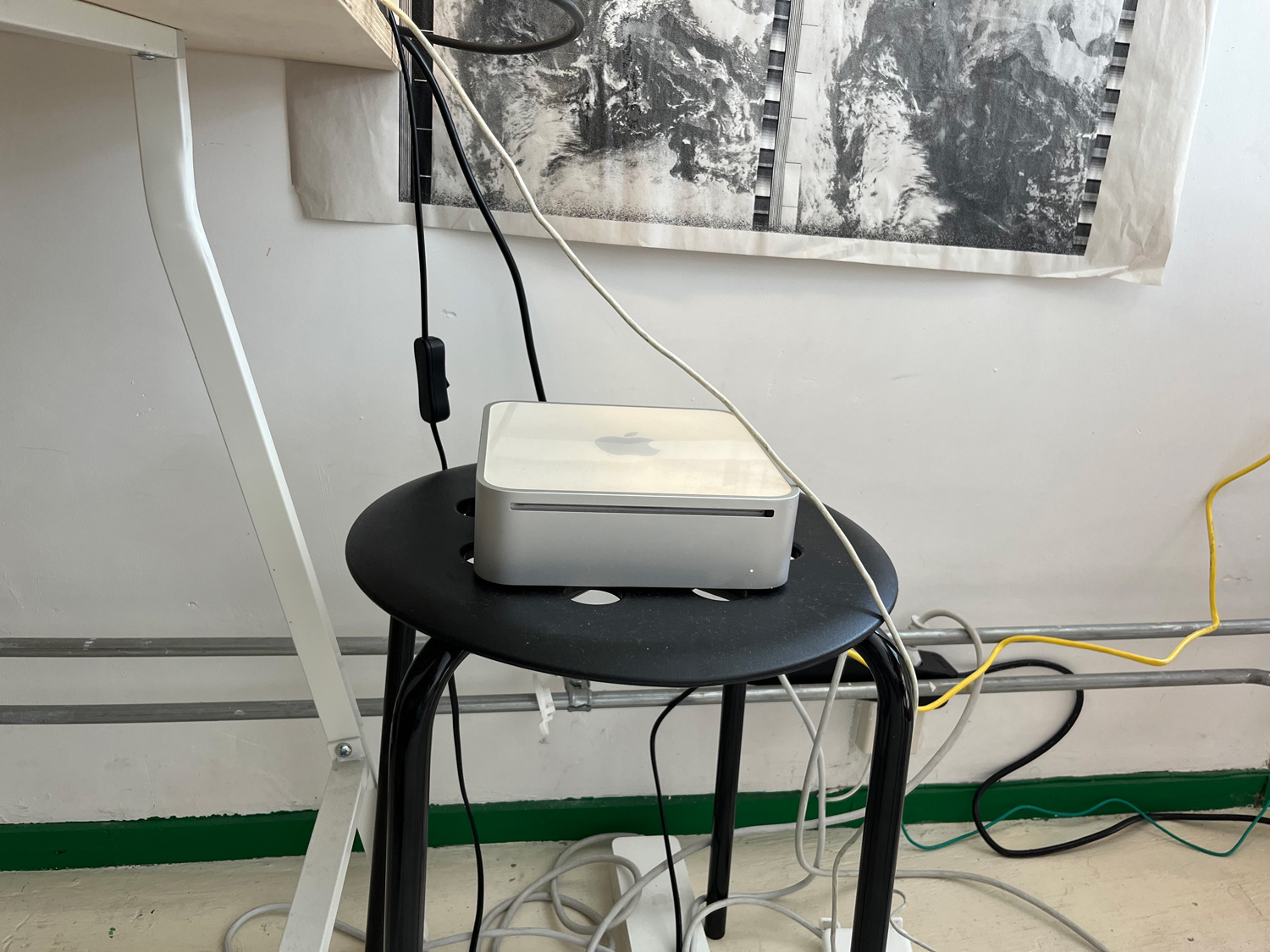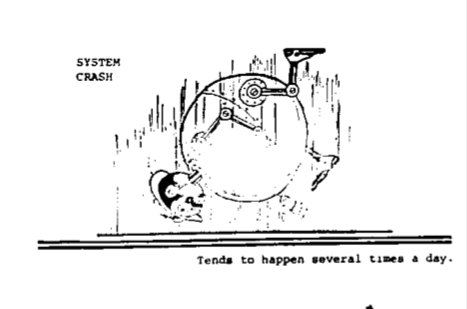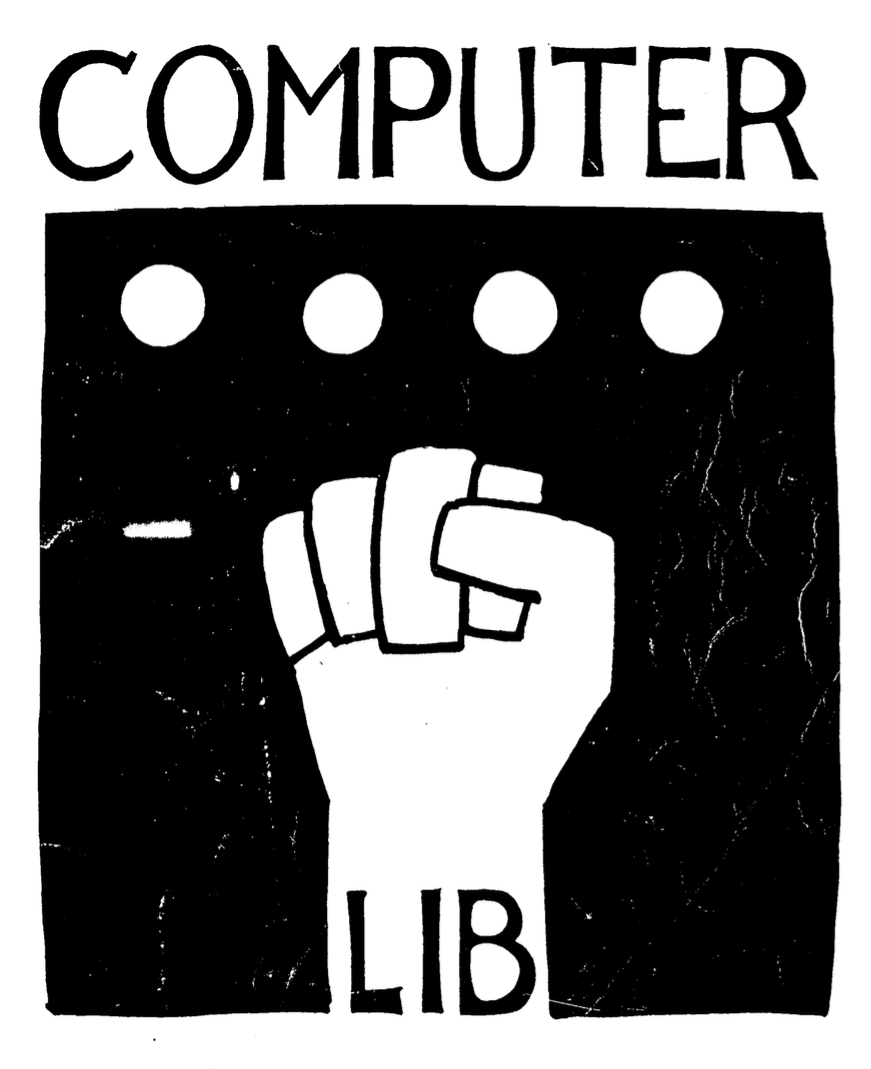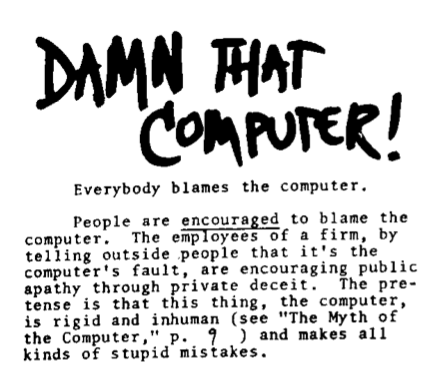Frustrating Computers
17.05.2023
#frustration#coding in situ
#computer lib
#self-hosting
I was originally going to write something about the various computer histories I've been reading up on recently, but I feel the need to write about something else that feels more urgent at this moment.
Over the last few weeks I've been attempting to set up a server in the Extra Practice studio that can become a hub for our our digital studio life. I had dreams that it would become not only a practical tool where we could write, organise and store things together, but also somewhere that we could experiment and play with digital tools, websites and general online things.

As part of this process I wanted to try recycling old hardware rather than buying something new in an effort to keep our ecological impact low and not contribute any e-waste to the already cluttered world. We have had a 2007 Mac Mini that Kirsten brought to the studio lying around for a while that was no longer in use, so I decided to use it. At first, I wanted to install Etherpad, Nextcloud and simple web servers for us all to use and then go on from there to open it up to everyone to play with.
However, since I started a couple of weeks ago, I've constantly been taking one step forward and two steps back. Part of this frustrating lack of progress was indeed due to my own incompetences and the learning I did as I went through the various steps. I was (and still am) not an expert in self-hosting, I was learning on the go with the help from tutorials, Stackoverflow and friends. But this was a certain type of frustration that I actually enjoyed, it gave me pleasure to learn and gain more insight into how these things work. The other type of frustration that I've dealt with (and which is the subject of this post) has been one created over time through the black-boxing of computers, the professionalisation of computing and the complete separation of user and programmer, amongst other things. It's a frustration that I've felt ambiently whilst I interact with the various digital devices that I own, but felt more acutely as I attempted to work in a more direct manner with them.
I had already encountered these frustrations whilst attempting to connect a Raspberry Pi to the Wifi of the school in which I teach in order to use it as a server. Whilst I don't want to point the blame at the IT department (in fact they were very helpful), what should have been a simple task became a difficult one. Ease of use meant the Wifi network had been simplified to the point where it was no longer a resource that could be experimented with, modified and learned from but instead only something that could be passively consumed by those inside the school. This somehow feels detrimental to the process of learning but is not what I wanted to write about here.

Back in our shared studio, on our shared wifi with a piece of hardware that was somewhat hackable, I began to face new frustrations. Hardware frustrations led on to software frustrations which led to documentation frustrations and finally on to learning and progress frustrations.
The Mac Mini I was attempting to convert into a server was a (mid) 2007 model, this makes it 16 years old at the time of writing. Granted that in the context of modern computers 16 years, unfortunately, is a long time (according to this website, that makes it 214 computer years old??). However, I still think it's important to ask why that is. Is it because electronics don't last that long? Do the materials that create landfills of e-waste that will never ever decompose somehow very easily decompose when they're within our nice shiny computer cases? Or is there another reason, perhaps one that involves profit? Is the answer here too easy?
However, this 16/214-year-old computer was working. I could boot it up, plug in a keyboard and a mouse, attach a screen to it and an old version of Mac OS would boot up. But to turn this computer into a server, I needed to wipe away the shiny GUI of Mac OS and install Linux. After several failed attempts at creating a bootable USB drive with various flavours of Linux, I thought it might be good to look into what was contained within our neat little cuboid computer. It turned out that Apple had decided to mix a 64-bit CPU with a 32-bit motherboard, thus creating what some people on the internet called 'dirty architecture'. This 'non-standard' hardware architecture meant that it was difficult to begin installing any OS that wasn't originally designed for this specific computer. This, of course, is not an isolated incident of computers being designed to be compatible with very specific soft/hardware, I was just somewhat surprised that it was happening in 2007.

One of the frustrations I have with computers such as this Mac Mini and the Macbook on which I am writing this text is that they're not open to change and experimentation by default. It's part of a long history of computers being made "user-friendly" and profit-driven that has been at the expense of computer literacy and user agency. Whilst having these frustrations, I revisited Ted Nelson's 1974 Computer Lib/Dream Machines which boldly claims that "you can and must understand computers now". It's a dreamy, handmade, sketchy, and hopeful publication that is filled with information, tips and tricks, and resources about computers in the 1970s. A lot of it (but maybe not the technical explanation) still rings true. Nelson explains "the myth of the machine", the invention of the term "Cybercrud", computer languages, hypertext, computer erotica...the list goes on. All of which are illustrated with playful drawings and bad jokes.

As I sat staring at the terminal of the Mac Mini, trying to figure out why it kept breaking down, I found myself wishing for a modern-day Computer Lib, something that's as playful and accessible as Ted Nelson's original publication with an emphasis on creativity and empowerment that focuses on rudimentary computing.
As I was going through this painful process of setting up the server, I asked my friend Lukas Engelhardt for help and advice. Whilst giving me plenty of practical advice on different software and the way to go about setting up a server, the piece of advice that seemed most important at this moment was "Write down everything you do, you will forget lol". Whilst I am now keeping better records of my activity, I am also writing down how I felt during the process which in this case is mostly frustration.

Whilst this whole text feels a bit like a long rant now, I don't really care because I feel like programmers, developers, computer engineers, designers and anyone involved in putting together a computer needs to know that when computers are built to prioritise profit with smooth, seamless experiences, they begin to eliminate any chance that we can begin to imagine computers anew which I feel like is exactly what we need when so much of what we do is done on computers and that those very computers contribute to ecological, social and cultural collapse. Urgh.
Anyway, I'm done with reading and looking and writing, I want to start making. Time to find people, places, hardware and software that will support that. I'm going to start a Computer Club.
Back…